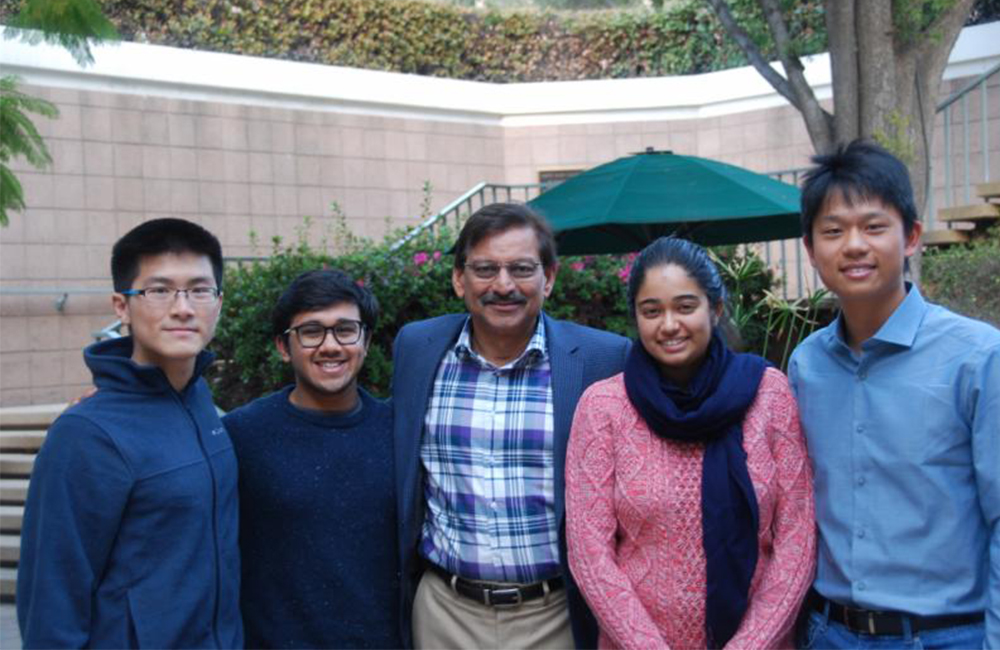Engineering Students Win Regional APICS Competition
March 7, 2018
For the second year in a row, a team of Harvey Mudd College students has won top honors at the regional APICS (American Production and Inventory Control Society) student case competition. Bohan Gao ’19, Anjaneya Malpani ’18, Ramita Kondepudi ’18 and Peter Leung ’19 (Pitzer) will head to Chicago in September to compete in the final round, to be held during the annual APICS conference. The regional competition was sponsored by APICS, the professional association for supply chain management, and Deloitte Consulting, a professional services firm.
Advised by Kash Gokli, professor of manufacturing practice and Engineering Clinic director, the students joined over 200 teams entering the 2017–2018 case competition in October 2017. After advancing through two virtual rounds, the Harvey Mudd team entered the West Coast regional competition last month. Other regional competitions were held simultaneously in Amsterdam, Atlanta, Chicago, Mexico City, Parsippany and Toronto. Eight teams from universities/colleges in four countries will compete in the final round.
Gokli assembled the team with students from his E183 course, Management of Technical Enterprise, in which they learned fundamentals of business, engineering economics, investment and finance, all skills that come in handy in supply chain problem solving. “We weren’t sure how we’d compare against the MBAs because none of us have deep supply chain knowledge, so we were pleasantly surprised and really excited to see that we knew enough to win,” says Kondepudi.
The team was presented with a supply chain case which mimicked a Mexico-based electronics company’s daily operations. Initially, they were given basic information, like financial documents and market analysis, and asked to determine whether the company should expand its operations to Brazil or not. As the competition proceeded, they were given more information, which added the extra challenge of having to reassess their ideas and possibly change course.
Over six hours, the team developed a plan for the company and—key to their success in the competition—a convincing presentation for the judges. “Most important in the end,” says Leung, “isn’t whether your solution is correct because there are many possible solutions. It’s how can you make the best story that’s presentable and convincing?”
“That’s where the skills from our classes and Clinic really help,” says Malapani. “We were able to analyze the data, make sound decisions, provide strong solutions and then tell a good story with a presentation that helped us win the competition. Winning against so many teams, including MBAs in supply chain analytics, was very rewarding to us.”
Though they have no idea what the final-round assignment will be, Gokli and the students are eager to attend the final competition. “I’m excited to see the variety of teams competing in the global round,” says Kondepudi, noting the breadth of idea sharing and networking opportunity an event like this provides.
A first-place finish would also be nice. “I’m excited to see if we can win there, too!” says Malpani.
